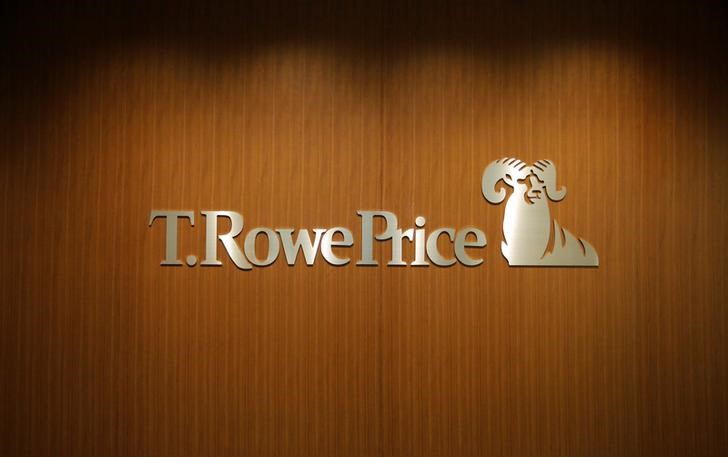 © Reuters. Logo of T. Rowe Price Group is pictured at its office in Tokyo
© Reuters. Logo of T. Rowe Price Group is pictured at its office in TokyoBy Trevor Hunnicutt
NEW YORK (Reuters) – Winning stockpicker T. Rowe Price Group Inc (O:) has a message for investors: do not give up on bonds.
“We’ve been lowering our allocation to stocks and have increased our allocation to bonds as well as cash,” said Charles Shriver, co-head of the Asset Allocation Committee at T. Rowe Price, describing changes over the past “several quarters.”
T. Rowe Price’s target-date retirement funds for 2015, 2020, 2025 and 2030 were recognized at the 2018 U.S. Thomson Reuters Lipper Fund Awards on Tuesday for their performance over three, five or 10 years. Two of the funds received trophies for their performance in every one of those time periods.
“We have been reducing the risk profile in our portfolios,” Shriver told Reuters.
The near-decade-long bull market in U.S. stocks has beefed up the average investor’s stock holdings, he said, and it may make sense for some investors to decrease their risk. Stocks are still expensive relative to their long-run records, according to Shriver.
It may be a tough message to swallow for investors smarting from fixed-income losses. The average “core” bond fund posted a 1.9 percent decline this year, through Feb. 23, according to Thomson Reuters’ Lipper research unit.
Investors are concerned that the U.S. Federal Reserve could be forced to raise rates more quickly than anticipated to prevent the economy overheating. Those fears have helped lift bond yields, pushing prices down. Benchmark 10-year Treasury notes () traded as high as 2.957 percent this year, from a low of 2.016 in 2017.
Billionaire Warren Buffett on Saturday warned that high-grade bonds can increase the risk of an investment portfolio as inflation eats away at the return.
Bonds will nonetheless retain their “role as a diversifier,” Shriver said. Bond prices tend not to move in the same direction of stocks over time, a divergence that helps investors stay invested and which Shriver expects to continue.
Target-date funds, including those managed by T. Rowe Price, hold both stocks and bonds, with the proportion of debt instruments typically increasing as an investor nears retirement.
With bond yields rising, so too is the reward for sitting in short-term bonds and cash.
“You are getting compensated for liquidity,” said Shriver.
He said T. Rowe Price also sees relative bargains in Europe and Japan’s stock markets. The asset manager has also been increasing its allocation to small-capitalization stocks, which Shriver said could benefit from U.S. corporate tax cuts.
Fusion Media or anyone involved with Fusion Media will not accept any liability for loss or damage as a result of reliance on the information including data, quotes, charts and buy/sell signals contained within this website. Please be fully informed regarding the risks and costs associated with trading the financial markets, it is one of the riskiest investment forms possible.
Source: Investing.com



























